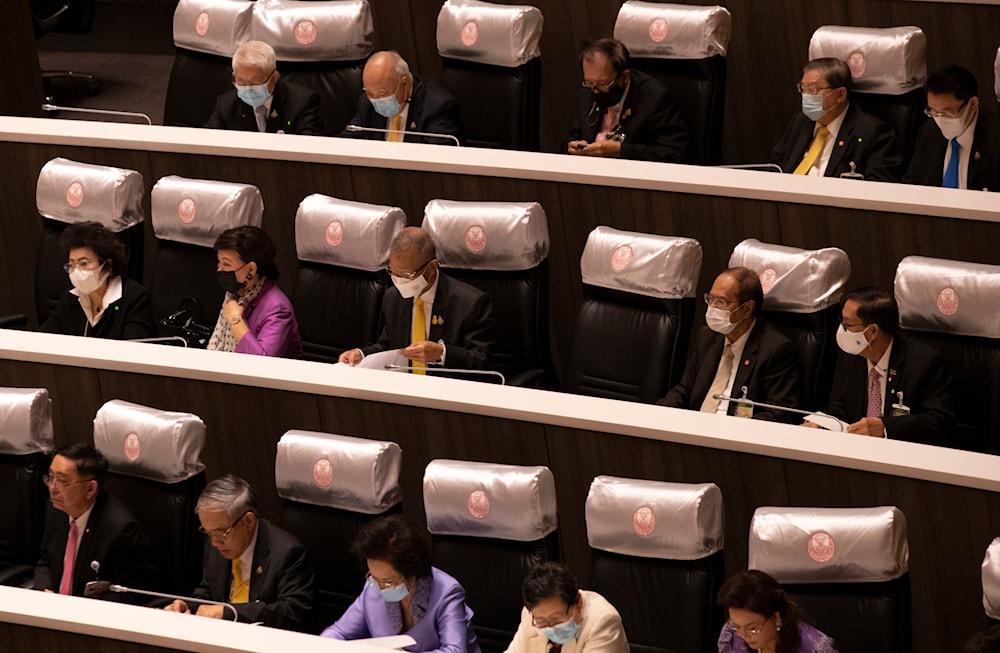Thailand begins prepping for first Senate elections since 2007
The election preparations were initiated as a result of the end of the transition period from military to civilian rule and the nearing expiration of the term of the current Senate.
-

In this November 17, 2020, file photo, Thai Senate members attend a joint session of the House and Senate at the Parliament in Bangkok, Thailand. (AP)
The Thai Election Commission revealed that for the first time since 2007, Thailand is launching preparations for the first elections to the Senate, which is the upper house of parliament.
After a military coup, the Senate was suspended in 2014, before continuing its mission in 2019 after the transfer of power to a civilian government, however, it had appointed senators rather than elected ones.
This process was initiated as a result of the end of the transition period from military to civilian rule and the nearing expiration of the term of the current Senate. The Royal Government Gazette published the election commission's statement revealing that the elections will take place following the non-transitional provisions of the 2017 Thai Constitution.
The Thai Senate has been appointed by royal decree instead of elections for most of the country's history, only to become fully elected under the 1997 constitution in 2006.
However, the Senate did not meet due to a military coup against the elected government of Prime Minister Thaksin Shinawatra in September 2006, abolishing the 1997 constitution.
The next constitution, adopted in 2007, made the Senate half-elected and half-appointed. However, it also lapsed after a 2014 military coup against the government of Yingluck Shinawatra, the younger sister of Thaksin and the first female prime minister in Thai history.
The current constitution of Thailand was adopted in 2017.
Former Thai PM released from prison on parole
Former Prime Minister of Thailand, Thaksin Shinawatra, was released on parole on February 18, according to incumbent PM Srettha Thavisin on Saturday.
During a briefing broadcast by the Thairath TV channel, Thavisin said, "Ex-Prime Minister Thaksin Shinawatra will be released on parole on February 18. His release takes place in full accordance with the law and legal procedure in force under the Justice Ministry's system."
The parole decision took into consideration factors such as his old age at 74, the presence of severe chronic diseases, and the fact that February 18 marks half of the one-year sentence he was given, which is more than a third of the imprisonment required by the law on parole.
Shinawatra returned from 15 years of self-imposed exile.
He was Thailand's prime minister from 2001 until 2006 when he was deposed in a military coup and fled the country to avoid accusations that he claimed to be politically motivated.
He returned to Thailand in 2008 and pleaded not guilty before the Supreme Court. Later that year, the lawmaker traveled to Beijing for the opening ceremony of the 2008 Summer Olympics and did not return to hear the ultimate court sentencing, breaking his bail conditions. After his asylum application was denied in the United Kingdom, he began traveling to other countries.

 3 Min Read
3 Min Read








